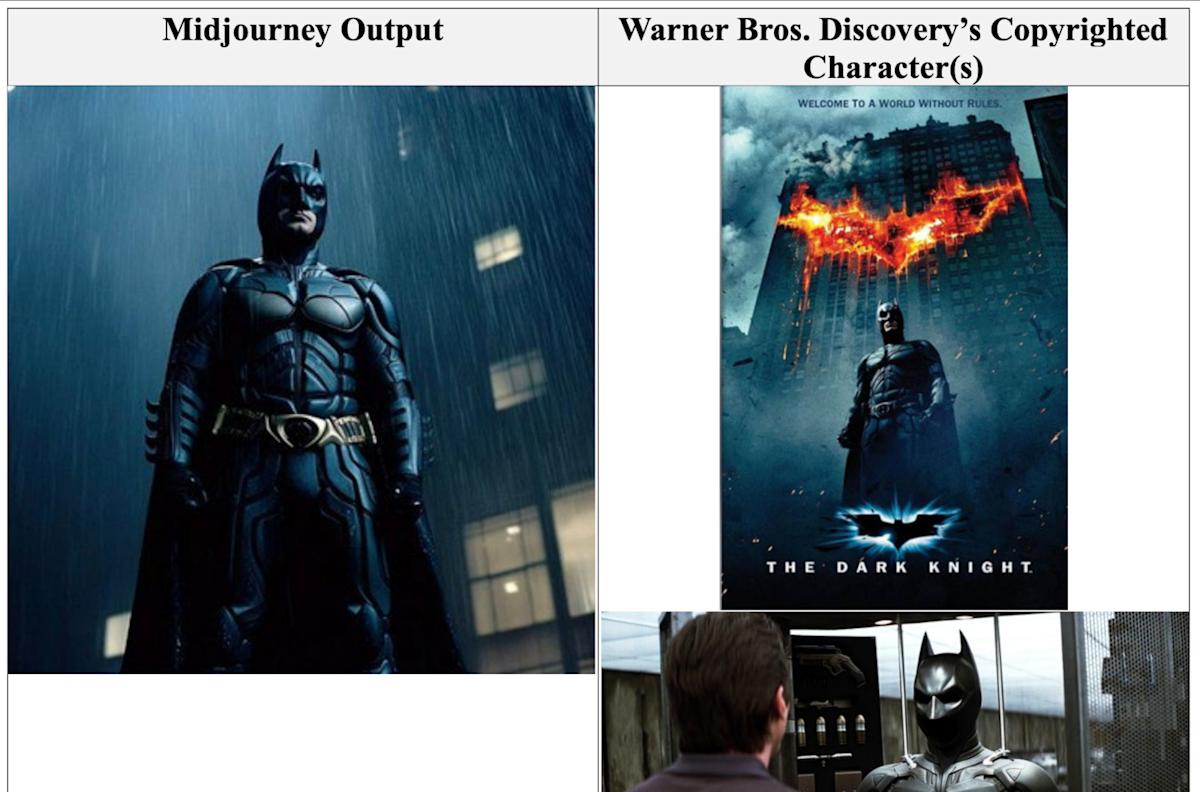Warner Bros. Discovery Sues Midjourney Over Copyright Infringement

Key Points
- Warner Bros. Discovery files lawsuit against AI image generator Midjourney for alleged copyright infringement.
- The complaint cites unauthorized generation of characters like Superman, Batman, Wonder Woman, Scooby Do o, and Bugs Bunny.
- Midjourney reportedly removed filters that previously blocked copyrighted content, allowing “fewer blocked jobs.”
- Side‑by‑side comparisons in the filing show Midjourney outputs matching official Warner Bros. Discovery imagery.
- The studio seeks statutory damages of up to $150,000 per infringed work.
- Midjourney’s subscription fees range from $10 to $120 a month, with character generation highlighted as a key feature.
- The case joins similar lawsuits from Disney and Universal Studios against Midjourney.
- Potential precedent for AI companies to implement stronger copyright safeguards or licensing arrangements.
Warner Bros. Discovery has filed a lawsuit against AI image generator Midjourney, alleging that the service was trained on and is using the company’s copyrighted characters without permission. The complaint cites examples such as Superman, Batman, Wonder Woman, Scooby Doo, Bugs Bunny and other Looney Tunes figures appearing in Midjourney‑generated images. Warner Bros. Discovery says Midjourney removed safeguards that previously blocked such content, allowing users to create and commercialize depictions of its intellectual property. The company is seeking statutory damages of up to $150,000 per infringed work and include references to related lawsuits by Disney and Universal Studios.
Background
Warner Bros. Discovery, a major media conglomerate, has initiated legal action against Midjourney, a popular artificial‑intelligence image generation platform. The lawsuit centers on claims that Midjourney’s technology was trained using Warner Bros. Discovery’s copyrighted works and that the service now permits users to produce images and video stills that feature the company’s iconic characters.
Allegations of Unauthorized Use
The complaint asserts that Midjourney’s AI model can generate depictions of characters such as Superman, Batman, Wonder Woman, Scooby Do o, Bugs Bunny and other figures from the Looney Tunes franchise. Warner Bros. Discovery argues that these outputs constitute direct exploitation of its intellectual property without licensing or permission.
Removal of Protective Measures
According to the filing, Midjourney originally employed filters that blocked the generation of copyrighted characters. The lawsuit states that the company later removed those protections, informing users that they would encounter “fewer blocked jobs.” This change, Warner Bros. Discovery contends, opened the platform to systematic infringement.
Examples Cited in the Complaint
The legal document includes side‑by‑side comparisons of Midjourney‑generated images and official Warner Bros. Discovery promotional material. One highlighted example pairs a Midjourney output prompted with “Batman, screencap from The Dark Knight” alongside an actual still from the Christian Bale‑led film. The complaint also notes that generic prompts like “classic comic book superhero battle” can yield results featuring Warner Bros. characters even when those characters are not explicitly named.
Statutory Damages Sought
Warner Bros. Discovery is requesting statutory damages of up to $150,000 per infringed work, citing the alleged willful nature of the infringement. The filing emphasizes the commercial value of Midjourney’s subscription service, which ranges from $10 to $120 a month, and argues that the ability to generate high‑profile characters is a significant draw for paying customers.
Industry Context and Parallel Lawsuits
The lawsuit joins a broader wave of legal challenges targeting AI image generators. Disney and Universal Studios previously filed a copyright infringement suit against Midjourney, accusing the platform of training its models on “countless” copyrighted works and enabling users to create images of characters from Star Wars, Shrek, The Simpsons, Despicable Me and other properties. Warner Bros. Discovery’s action adds another major studio to the growing list of plaintiffs confronting AI companies over alleged IP violations.
Potential Implications
If successful, Warner Bros. Discovery’s case could set a precedent for how AI services must handle copyrighted material, potentially obligating them to maintain robust filtering mechanisms or to secure licensing agreements for the works used in training their models. The outcome may also influence how subscription‑based AI platforms price and market themselves, especially if the ability to generate well‑known characters is deemed a protected commercial advantage.